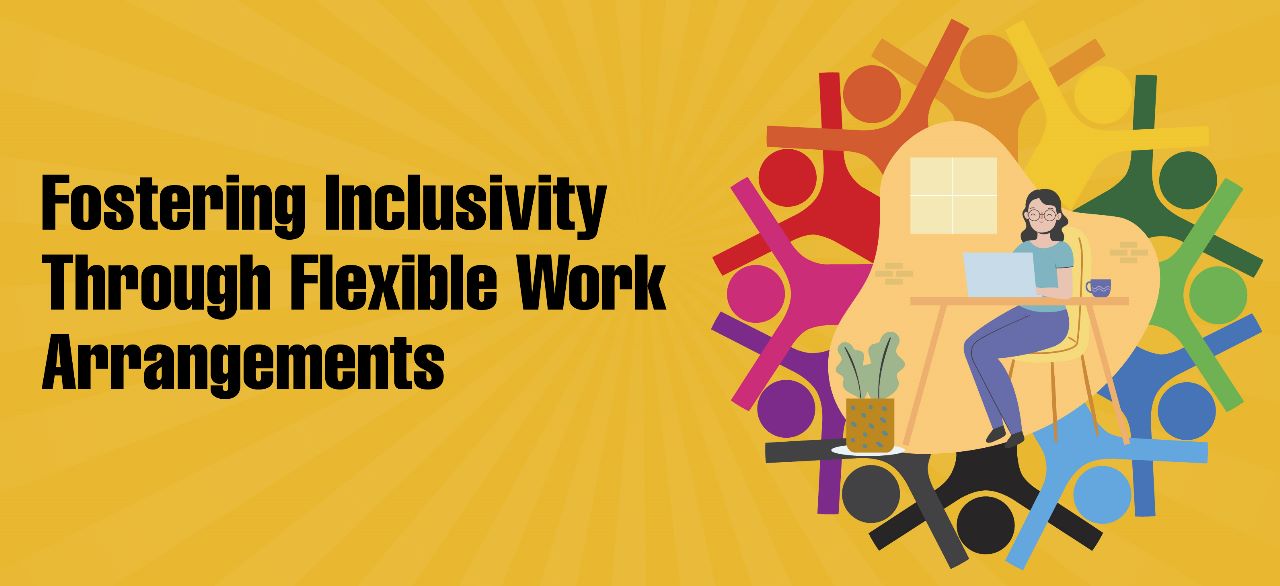Fostering Inclusivity Through Flexible Work Arrangements
The Changing Gamut of Inclusivity

In the modern, interconnected world, workplace diversity and inclusivity have become increasingly crucial, particularly as the country prepares for the legalization of same-sex marriages. Inclusivity has become much more than just gender equality during the hiring process or the general headcount.
Creating a more inclusive workplace means accommodating different talent pools that often are overlooked, like qualified new mums who need to stay home, people with family obligations, people with disabilities, transgender people, LGBTQ, etc.
Unfortunately, many organizations still struggle with creating diverse teams and fostering inclusive work environments. This can lead to a host of problems, such as poor employee morale, high turnover rates, and decreased productivity.
The Need for Diversity and Inclusion
Diversity and inclusion are critical for the success of any organization. A diverse workforce brings together people with different backgrounds, experiences, and ideas, which can lead to more innovative solutions and better decision-making. Inclusive organizations also tend to have higher employee morale and job satisfaction, which can lead to increased productivity and profitability. In the talent war today, this goes without saying.

Organizations that do not prioritize diversity and inclusion risk creating an environment in which some employees feel excluded or marginalized. This can lead to a host of problems, such as decreased employee engagement, lower job satisfaction, and higher turnover rates. In addition, a lack of diversity and inclusion can also limit the perspectives and experiences brought to the table, resulting in less innovative solutions and reduced competitiveness in the marketplace.
Overall, the need for diversity and inclusion in the workplace is clear. Organizations that prioritize diversity and inclusion are more likely to attract and retain top talent, promote innovation and creativity, and build a positive reputation with customers, employees, and stakeholders.
The Solution
One of the easiest ways to achieve diversity and inclusivity in the workplace is to offer flexible work arrangements.

When organizations do not offer flexible work options, they may inadvertently exclude talented and qualified individuals who cannot fit into a traditional 9-to-5 work schedule due to personal or family obligations. This can limit the pool of applicants, resulting in a less diverse workforce.
Moreover, a lack of flexibility in the workplace can create an environment that is hostile to employees with different needs and backgrounds. This can lead to feelings of isolation, discrimination, and ultimately, a loss of talent.
It's an essential element that organizations must embrace to thrive and remain competitive. Offering flexible work arrangements is a critical step towards inclusivity, as it allows individuals from diverse backgrounds and experiences to work in a way that suits their needs and preferences.
The Benefits of Flexible Work Arrangements

Flexible work arrangements provide numerous benefits for both employees and organizations, including:
- Improved work-life balance
Flexible work arrangements can provide employees with greater control over their work schedules, allowing them to balance their personal and professional responsibilities more effectively. This can lead to reduced stress levels, increased job satisfaction, and better mental health. Employees who have a better work-life balance are also more likely to be productive and engaged at work.
- Increased employee productivity and satisfaction
When employees have the flexibility to work in a way that suits their individual needs and preferences, they are more likely to be motivated and engaged in their work. This can lead to increased productivity, higher quality work, and improved job satisfaction.
- Reduction of absenteeism and turnover rates
When employees have the ability to work from home or adjust their schedules to accommodate personal needs, they are less likely to miss work due to illness or family obligations. Additionally, flexible work arrangements can help employees feel more connected to their jobs and more committed to their organizations, reducing the likelihood that they will leave for other opportunities.
- Attraction and retention of a diverse workforce
When companies offer flexible work arrangements, they can accommodate the needs of individuals who may not be able to work traditional 9-to-5 schedules due to personal or family obligations. This can increase the pool of qualified applicants and lead to a more diverse workforce. Additionally, organizations that offer flexible work arrangements are more likely to retain their employees, particularly those who value work-life balance and flexibility.
Conclusion
Flexible work arrangements play a crucial role in creating a diverse and inclusive workplace. By accommodating the needs and preferences of individuals from diverse backgrounds and experiences, organizations can create a more welcoming and supportive workplace culture that attracts and retains top talent.
The benefits of flexible work arrangements are numerous, including improved work-life balance, increased employee productivity and satisfaction, and reduced absenteeism and turnover rates. Additionally, flexible work arrangements contribute to a positive company reputation and brand image.
Therefore, it's essential for companies to embrace flexible work arrangements and prioritize inclusivity and diversity in their workplace culture.
By doing so, they can stay ahead of the competition and thrive in today's rapidly changing business landscape. As we move towards a more connected and globalized world, it's more important than ever for companies to create an inclusive and supportive workplace that accommodates the needs of a diverse workforce.


